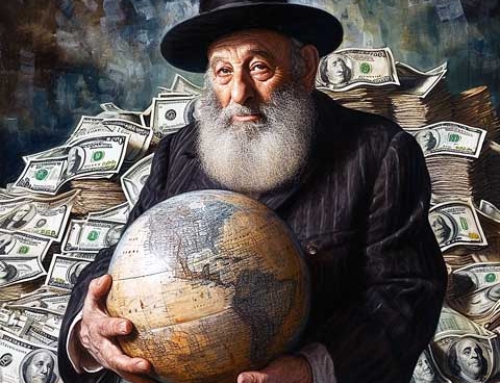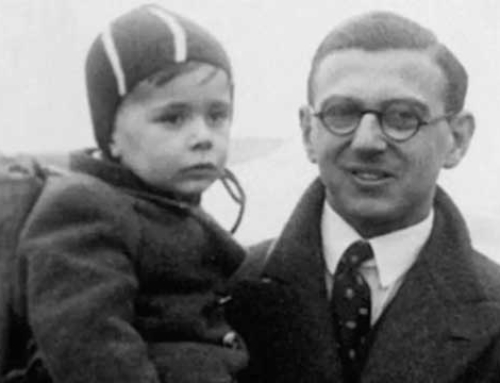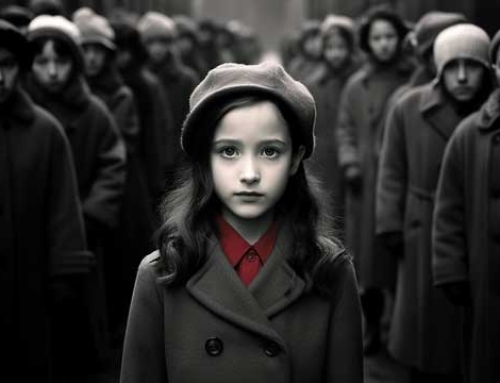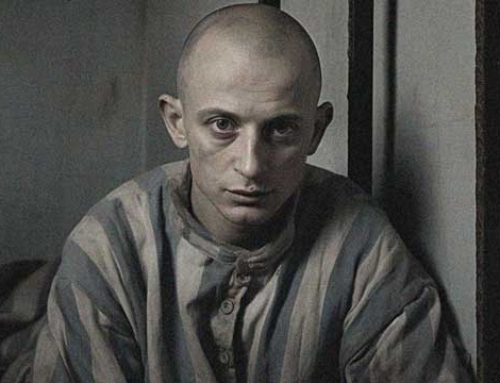Yesterday, Saturday, October 7, 2023, Hamas has launched a massive offensive against southern Israel. As I pen this down, Israel has already counted over 600 fatalities, around 2,000 injured, and it’s believed that over 100 Israeli civilians have been kidnapped and taken to Gaza.
The overarching sentiment right now is that this is a long and meticulously planned operation, with a primary aim of targeting, and frankly, killing as many civilians as possible.
Setting aside any stance on the ongoing conflict between Israel and the Palestinians, I felt it imperative to take a deep dive with you into Hamas, its ideology, and its policy choices.
So, who or what is Hamas?
When you hear the word ‘Hamas,’ what pops into your mind? For many, it’s just a distant political movement somewhere in the Middle East. But there’s a lot more lurking beneath the surface than you might assume.
Let’s recap for a moment: Hamas is a Palestinian faction that has been pulling the strings in the Gaza Strip since 2007. Now, political disagreements are a dime a dozen, but what makes this situation stand out is the extreme, and let’s be real here, downright fascist nature of Hamas.
Hamas: A Chilling Charter
Hamas’s charter, penned in 1988, isn’t just some dry document brimming with bureaucratic jargon. It’s far more sinister. This alarming manifesto is jam-packed with hate-filled declarations and extremist ideals. Compare it to the hardline stance of the Iranian regime, and you’ll get a sense of their endgame.
To start off, the charter calls for the obliteration of the state of Israel and the establishment of a Palestinian state stretching from the river to the sea, utterly dismissing any form of peaceful coexistence.
The charter states, “our struggle against the Jews is very extensive and grave,” advocating for the eventual establishment of an Islamic state in Palestine, in place of Israel and the Palestinian Territories, and the extermination or dissolution of Israel.
Moreover, the charter is riddled with anti-Semitic language, trotting out conspiracy theories that pin the blame for global issues on Jews. For instance, it suggests that Jews were the instigators behind both World Wars and aspire to global domination.
“Article 22 makes sweeping statements about Jewish influence and power. Specifically, it alleges that Jews ignited several revolutions and wars, including the French Revolution, World War I, and the Russian Revolution. It also asserts that Jews control the United Nations and that they’re backed by ‘the imperialistic forces in the capitalist West and communist East.’”
Article 7 posits that, come Judgment Day, all Jews will be annihilated. This is a deeply disturbing proclamation, inciting hatred against an entire religious group.
“Article 7 depicts Hamas as ‘one of the links in the chain of the struggle against Zionist invaders’ and claims to be an extension of followers of the religious and nationalist hero Izz ad-Din al-Qassam from the Great Arab Revolt, as well as the Palestinian fighters from the First Arab-Israeli War. It adds a hadith asserting that on Judgment Day, all Jews will be annihilated.”
Women’s rights, as you might’ve guessed, barely get a look-in with their ideology. Women are primarily viewed as caregivers for their husbands and offspring, and their societal role is confined to conventional duties. Modern notions of gender equality find little resonance in this charter.
“Article 18 delineates the role of women as homemakers and nurturers, providing education and moral guidance to men.”
And democracy? Don’t bank on Hamas embracing this Western value. Instead, the charter champions a stringent interpretation of Islamic law, Sharia, as the guiding force in both life and governance.
This chilling charter isn’t just a bunch of words on a page. It carries ramifications. The ideas voiced in it have led to countless violent assaults, suicide bombings, and decades-long refusals of peace accords. It offers a peek into the extremist ideology of Hamas, standing in stark contrast to the values of freedom, equality, and democracy that many of us hold dear.
Where Freedom Perishes
In the Gaza Strip, under the rule of Hamas, daily life is marked by the curtailing of fundamental rights and freedoms. Especially for women, this reality is oppressively confining. They’re often prohibited from stepping outside without male accompaniment or even laughing in public. Additionally, dress codes, like the mandatory wearing of the hijab, can be strictly enforced without exception. These measures are just a glimpse into the constraints women face.
But it’s not just women who are oppressed. Press freedom in the Gaza Strip is severely restricted. Journalists daring to criticize the Hamas regime risk their lives. Many in the past have been imprisoned, tortured, or even killed. Those who dare voice divergent political views or even question them often find themselves detained without charges or a fair trial. In some instances, they’re tortured to extract confessions or intel.
Moreover, the right to assembly in the Gaza Strip is curtailed. Demonstrations or gatherings that don’t align with Hamas’s ideology often face violent dispersals. Many residents live in perpetual fear, knowing any act of dissent or even perceived opposition could jeopardize their safety.
In essence, life in the Gaza Strip under Hamas is one of restricted freedoms, where individuals’ basic rights are frequently violated in the name of political and religious ideologies.
Losing Humanity
Hamas, often discussed in the context of their conflict with Israel and their stringent regime rules, also has a past steeped in controversial and violent actions.
One of the group’s most disturbing tactics is their use of civilians, including children, as human shields during armed conflicts. This isn’t only a breach of international humanitarian laws but also showcases a ghastly willingness to gamble with innocent lives for military and political gains.
Additionally, Hamas has engaged in the recruitment of child soldiers. Kids, some as young as thirteen, are enlisted and trained to fight, execute suicide attacks, and dig tunnels for smuggling and infiltration. This has resulted in countless tragedies with young lives lost or irrevocably scarred by indoctrination and the horrors of war.
Furthermore, Hamas has repeatedly – as evident today – targeted civilian sites, including schools, hospitals, and public areas, with rockets and suicide bombers. These attacks, often aimed at instilling fear and chaos, have claimed innocent lives and left a lasting scar on the affected communities.
In summary, the concerns regarding Hamas go beyond just their ideological stances. Their history of violence against both military adversaries and innocent civilians, coupled with their use of contentious wartime tactics, underscores the grave threat they pose to peace and stability in the region.
Hamas Opting for Human Tragedies First and Foremost!
Allow me to transport you to a place where many individuals’ daily reality is marked by unpredictable threats; where an ordinary school day can turn into a nightmare in the blink of an eye. This is the story of Rivka…
Rivka, a kindergarten teacher in a small town near the Gaza Strip border, is preparing for a new school day. The sun is shining, and the children are playing outside, savoring the early morning warmth. Inside her classroom, she’s arranging crayons and setting up chairs in a circle for the morning story.
Suddenly, a loud alarm pierces the air – the unmistakable sound of a rocket alert. Rivka’s heart skips a beat in fear. She only has a few seconds to respond. Calling out to the children with forced calmness, she hurries them to the nearest shelter. Some children cry, while others are in shock, unable to comprehend the situation.
Inside the shelter, with the door firmly shut behind her, Rivka tries to soothe the children with a song, praying internally for their safety. The ground trembles beneath their feet. The noise of exploding rockets fills the air. Thoughts of her own children, studying elsewhere, flood her mind, hoping they too are safe.
After what feels like an eternity, silence ensues. It signals it’s safe to exit the shelter. Rivka escorts the children back to the classroom. The morning’s events have clearly left their mark; their previously cheerful faces now pale and fearful.
As she tries to continue her day, the fear lingers in Rivka. She wonders why her town was targeted and what Hamas aims to achieve by terrorizing innocent civilians. She’s just a kindergarten teacher, a mother, someone hoping to contribute to her nation’s future by educating children. Why would anyone want to harm her or these kids?
Every time the alarm sounds, Rivka is reminded of life’s fragility and the perpetual threat under which she lives. But she knows she has to remain strong, for herself and her students. Amid the chaos and fear, it’s her love for the kids and her faith in a brighter future that keeps her standing.
Yet, the lives of Gaza’s inhabitants are also disrupted by Hamas’s decisions.
Picture this scenario for a moment: it’s a cold winter morning where you live. You get up, ready yourself for a new workday, and kiss your kids goodbye. But instead of the familiar city sounds, you’re suddenly jolted by air raid sirens. You realize that due to a conflict with a neighboring country, an Islamist group has taken control of your nation, entirely disrupting life as you knew it.
This group imposes restrictions on what you wear, where you go, and who you speak to. Your neighbor, a journalist, has vanished after criticizing the brutal regime. Your daughter can’t attend school anymore as education for girls goes against the group’s “values.”
Outside, you see children, no older than your son or daughter, armed and in uniform, patrolling the streets. And in the market, you hear tales of individuals being used as human shields in the fight against the neighboring country.
It’s an unimaginable nightmare, isn’t it? Yet, this is the reality for many in the Gaza Strip under the Hamas regime.
Why is all this important to you?
You might be wondering, why should all of this matter to us, to you? Because in Belgium, we believe in human rights, in democracy, in equality. And when these values are under pressure anywhere in the world, we feel it here too.
It can be tempting to turn away from global news, especially when the issues seem distant. But the truth is, we are all interconnected. The fight for human rights in the Gaza Strip is our fight too.
If you take away one thing from this piece, let it be this: there is always hope. Even in the darkest times, together, we can make a difference. Educate yourself, speak up, and stand for what’s right. Because it’s that determination and solidarity that will propel the world forward.







